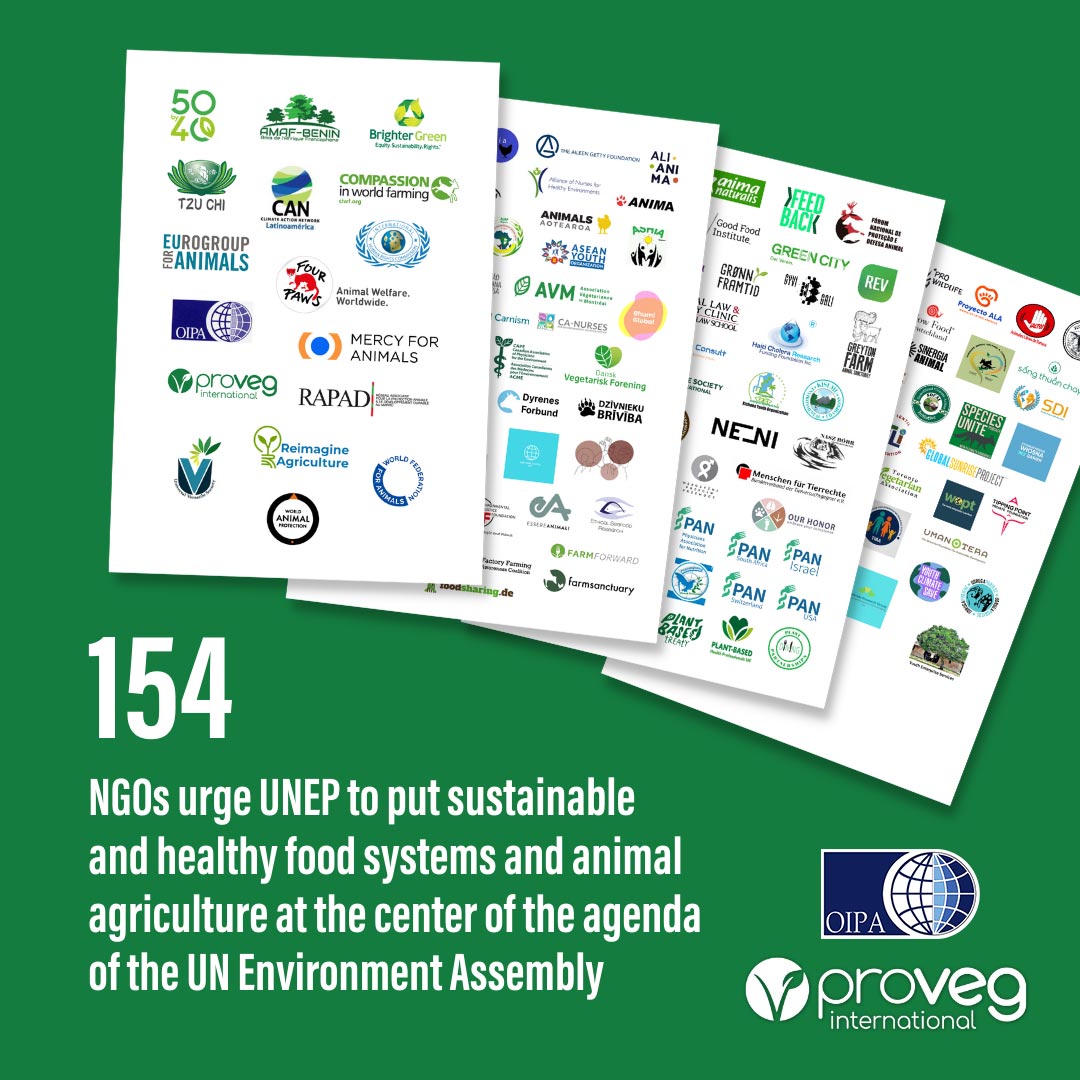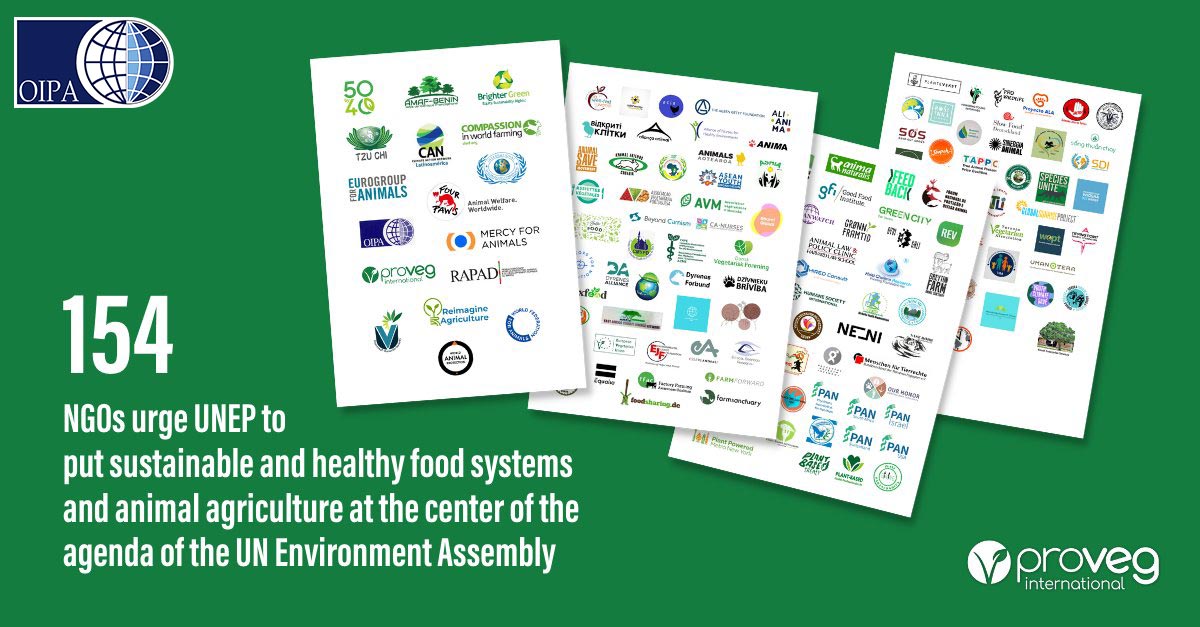Ahead of UNEA 5.2 (28 February – 2 March 2022), 143 NGOs has submitted a joint statement urging the President of UNEA and the Executive Director of the UN Environment Programme to include sustainable and healthy food systems and the negative consequences of animal agriculture in the agenda of UNEA 5.2 and to encourage a shift towards more plant-based diets in the climate and environment discussion.
At COP26, hundreds of countries pledged to stop deforestation and to reduce methane emissions by 2030. Industrial animal agriculture, primarily the production of animal feed and beef, is one of the leading causes of deforestation and is responsible for almost a third of global methane emissions (closer to 20% of total emissions).
Last year UNEP’s “Making Peace with Nature” report insists correctly and importantly that changing the dietary habits of consumers in developed countries by reducing the demand for animal products would improve human health and reduce the pressure on land, water, biodiversity, and the climate system. This shift should take place in a manner that ecosystems – e.g. forests, wetlands, oceans-, are not further degraded, but actually restored and conserved.
At the same time, experts agree that the increasing demand in animal-sourced proteins is a key driver in the emergence of zoonotic diseases and antibiotic resistance, both of which could be mitigated by reducing the world’s reliance on animal agriculture.
OIPA and other 142 NGOs are asking UNEP to join their advocacy for a shift towards more sustainable and less resource-intensive food systems. This would be of particular importance for countries from the Global North.
The following two actions could represent a change in direction:
- Acknowledging the links between factory farms, environmental destruction, and the increased risks of zoonotic outbreaks. UNEP could establish an action plan to enable an end to industrial animal agriculture in regions with an excessive dependency on animal-based protein and accelerate a shift towards plant-sourced proteins.
- Persuade governments, especially in the Global North, to take food systems and the dietary shift towards increased consumption of plant-based proteins into account when updating their NDCs and climate-mitigation strategies at the UNFCCC in coming years.
A food-system change will benefit not only food security, food safety and public health, but can highly lower environmental impact and improve animal welfare.
Read the letter





